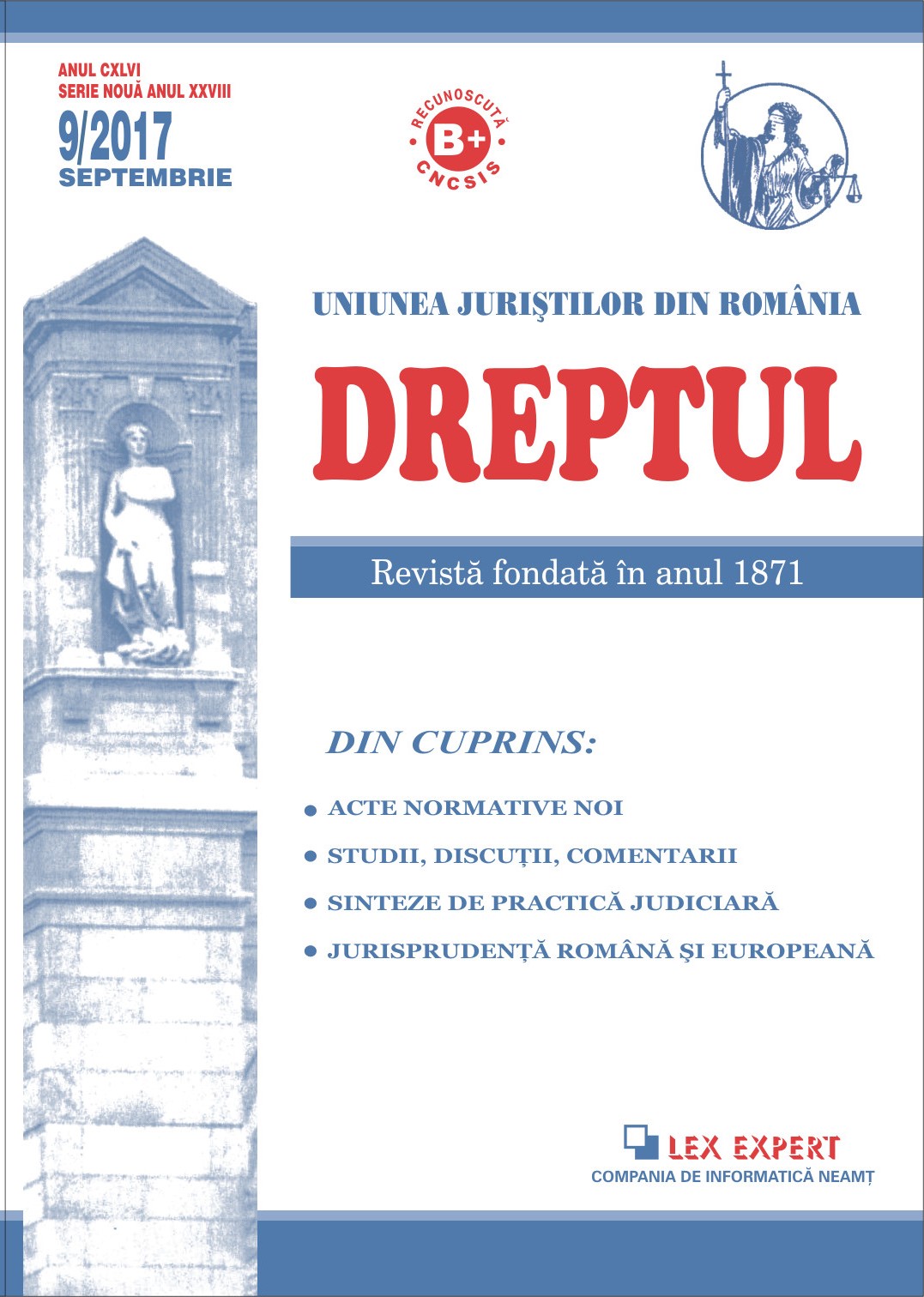Rolul și atribuțiile procurorului în cadrul procedurilor jurisdicționale
Role and attributions of the prosecutor within the jurisdictional procedures
Author(s): Valentin-Cristian ȘtefanSubject(s): Law, Constitution, Jurisprudence
Published by: Uniunea Juriștilor din România
Keywords: prosecutor; role and attributions; jurisdictional procedures.
Summary/Abstract: The attributions that confer substance to the activity of the prosecutor before the jurisdictional body are the participation in the trial of the criminal and civil cases, the exercise of the means of appeal against the judgments, the examination of the cases of non-uniform application of the law and the analysis of the cases in which the courts have delivered final judgments of acquittal, return or referral to the prosecutor. In criminal matters, the prosecutor mandatorily participates in the trial, under the sanction of absolute nullity, in the cases where the law expressly provides for his participation, and optionally, in cases other than those in which the law establishes the obligativity of participation. In civil matters, the rule is that the prosecutor takes part in the trial optionally, when he considers it necessary to defend the rule of law, the rights and interests of citizens. By way of exception, the prosecutor mandatorily participates in the trial of the civil cases when the obligativity is expressly provided. In criminal matters, the law opens for the prosecutor the path to exercise all means of appeal, ordinary (appeal, contestation) or extraordinary (recourse in cassation, contestation for annulment, revision), against various judgments. In civil matters, the prosecutor may exercise the means of appeal when he deems it is necessary to protect the rights and legitimate interests of minors, of the persons placed under interdiction and of the missing persons, or when he has participated in the trial of the case. The attributions of the prosecutor in the field of unification of the case law are materialized in formulating motivated proposals for promoting the appeal in the interest of the law, the identification of the situations in which the settlement on the merits of the case depends on the clarification, by a prior ruling of the High Court of Cassation and Justice, of a certain legal issue and in formulating conclusions able to determine a unitary way of settling the cases in which the two legal mechanisms for unifying the judicial practice can not be used. The common feature of the judgments of acquittal, return and referral of the case to the prosecutor is that they express solutions of the jurisdictional body that are in contradiction with the solutions ordered by the prosecutor within the prosecution procedures set in motion by the latter. The three solutions may constitute sanctions for the prosecutor and, therefore, they must be analyzed, for the purpose of determining, for each case separately, whether an acquittal or a return is attributable to the prosecutor who ordered the prosecution or whether a referral is attributable to the prosecutor who made the decision not to prosecute.
Journal: Revista „Dreptul”
- Issue Year: 2017
- Issue No: 09
- Page Range: 110-126
- Page Count: 17
- Language: Romanian
- Content File-PDF

